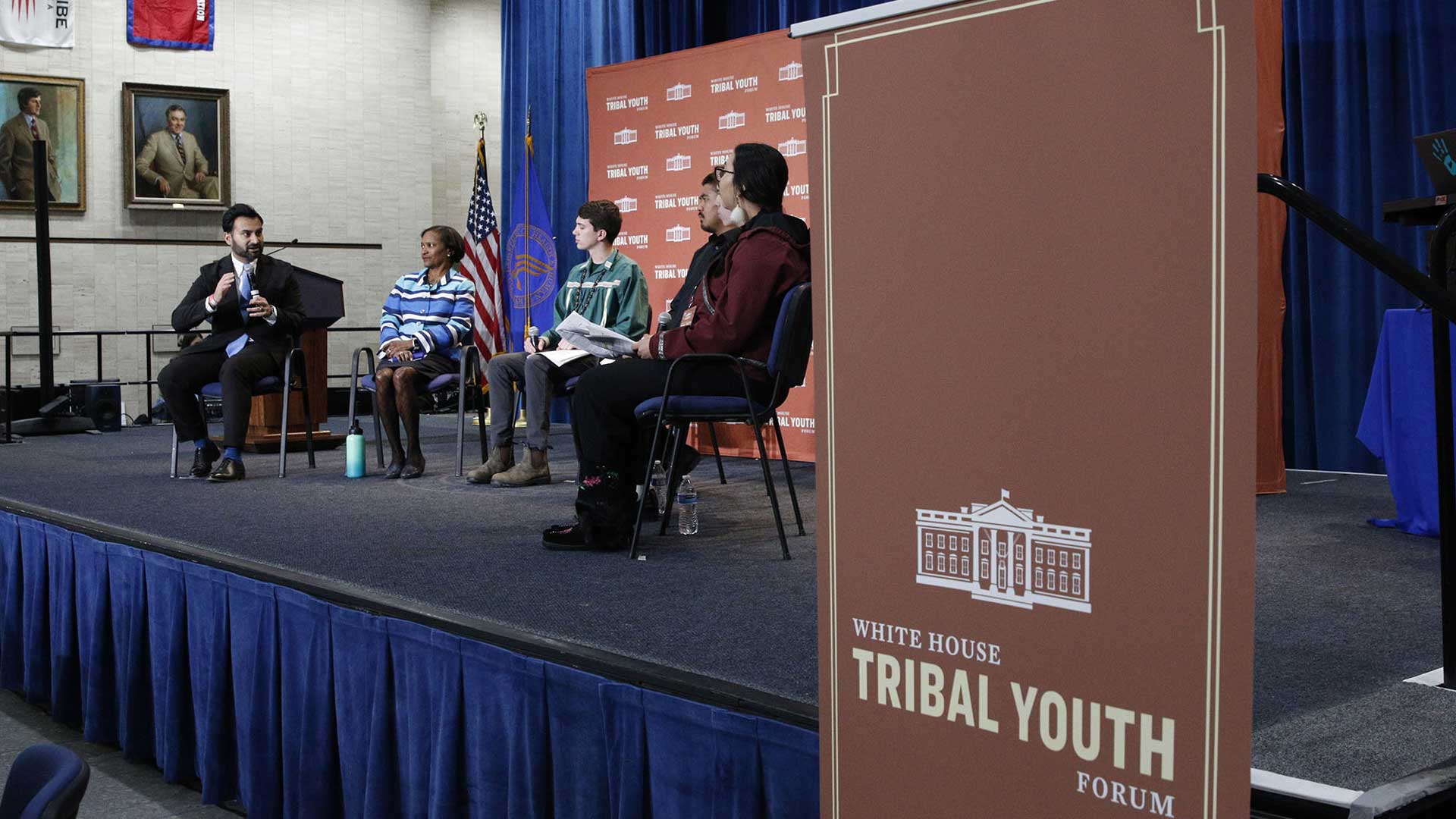 From left, National Climate Advisor Ali Zaidi and White House Council on Environmental Quality Chair Brenda Mallory take part in a panel with Native teens as part of the White House Tribal Youth Forum. November 2023.
From left, National Climate Advisor Ali Zaidi and White House Council on Environmental Quality Chair Brenda Mallory take part in a panel with Native teens as part of the White House Tribal Youth Forum. November 2023.
Gabriella Nakai said she has tackled the challenges facing Indigenous communities on her own, but that being surrounded by others who share her passion makes the load a little lighter.
“Seeing all of the amazing work that all of these Native national native youth leaders are doing pushes me forward and lets me know that when I am the only Native in these spaces that I have, all these people behind me that are going to have my back,” Nakai said.
She was one of two Arizona “Champions for Change” – along with Fort Apache resident Jovi Williams of the White Mountain Apache – at the third annual White House Tribal Youth Forum. It brought together 123 Indigenous teens from across the nation and other countries to share information on the issues affecting their communities today.
Discussions at the forum, which was held at the Department of Health and Human Services, ranged from climate change to civic engagement, from the legacy of federal Indian boarding schools to mental health and substance abuse.
The topic that brought Nakai to Washington was food insecurity.
“I have my Oklahoma tribe (Choctaw) and also my tribe (Navajo) and seeing the issues that plague both these communities are so similar, both having trouble getting access to fresh produce,” said Nakai, a junior at Arcadia High School.
During the pandemic, Nakai said her grandparents, who live in the Navajo Nation, did not have access to fresh produce. She took this issue into her own hands and began growing heirloom Native produce, like the Hopi melon, in her backyard garden.
“We started focusing more on traditional and native crops and noticed that those crops actually grow better in Arizona,” Nakai said.
The forum is organized in partnership with the White House, the Center for Native American Youth at the Aspen Institute and UNITY – the United National Indian Tribal Youth Inc. Started under the Obama administration, it was revived by President Joe Biden after a hiatus during the Trump administration.
This was the second trip to the East Coast this fall for Nakai, who was invited to the White House in October as one of 15 young women by first lady Jill Biden at the Girls Leading Change celebration. Nakai was the only Indigenous participant at that event.
By comparison, Nakai said being surrounded by Indigenous youth at this week’s forum “fills up her cup.”
“Having opportunities like this, and seeing other Native youth doing it, really pushes me forward, and knowing that I’m making an impact and even the small things we’re doing are fighting away at a bigger issue,” she said.

By submitting your comments, you hereby give AZPM the right to post your comments and potentially use them in any other form of media operated by this institution.